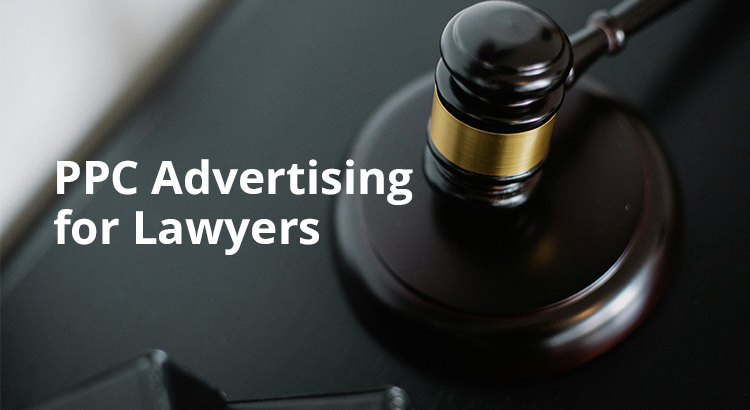Where online presence can significantly impact a law firm’s success, PPC advertising emerges as a powerful tool to connect with potential clients and boost business growth. By strategically deploying PPC for lawyers, law firms can precisely target their desired audience, thereby maximizing their marketing efforts and enhancing client acquisition.
Related Article: Digital Marketing for Law Firms: Useful Tips
Types of PPC (Pay-Per-Click) For Lawyers
1. Paid Search Ads
These ads appear at the top of search engine results pages based on relevant keywords, offering immediate visibility to potential clients actively seeking legal services.
2. Display Ads
Display ads are visual advertisements that appear on websites, mobile apps, and social media platforms, allowing law firms to expand their reach and increase brand awareness.
3. Social Media Ads
Leveraging platforms like Facebook, Instagram, and LinkedIn, social media ads enable law firms to engage with specific demographics and target audiences based on interests and behaviors.
4. Remarketing Ads
By targeting individuals who have previously visited their website, law firms can stay top-of-mind and re-engage potential clients who have shown interest in their services.
5. Google Shopping Ads
Particularly beneficial for firms specializing in consumer law, Google Shopping ads showcase specific legal services directly within Google search results, enhancing visibility and attracting relevant leads.
6. Local Service Ads
Designed for law firms targeting local clientele, these ads prominently display contact information, reviews, and service offerings, effectively connecting firms with nearby prospects.
7. Gmail Sponsored Ads
These ads appear in users’ Gmail inboxes, allowing law firms to reach potential clients directly through personalized email content.
8. In-Stream Ads
Positioned within online video content, in-stream ads offer law firms the opportunity to capture the attention of audiences on platforms like YouTube, delivering tailored messages to viewers.
Useful Article: PPC Advertising: A Step-by-Step Guide to Successful Campaigns
Benefits of PPC For Law Firms
The advantages of PPC for lawyers are listed below.
Immediate Results and Improved Visibility
PPC offers law firms instant visibility at the top of search engine results pages, crucial for standing out in competitive legal niches. Ad extensions enhance visibility, attracting qualified leads efficiently.
Partnering with a reputable PPC advertising company will help you achieve quick results and maximize your campaign’s effectiveness.
Targeted Audience Reach
PPC allows precise targeting of demographics, locations, and interests, maximizing ad relevance and ROI. Advanced options like demographic and location targeting further refine audience reach for conversion optimization.
Flexibility and Scalability
PPC campaigns provide law firms with flexibility to adjust ad spend, pause or scale campaigns as needed. Real-time tracking and analysis enable data-driven decisions for continuous optimization, ensuring optimal budget utilization and campaign effectiveness.
10 Tips for PPC For Lawyers
1. Define Your Goals
Establish clear objectives for your PPC campaign, such as lead generation or brand awareness. Monitor these metrics throughout to gauge progress and adjust strategies if necessary.
2. Know Your Target Audience
Understand your audience’s demographics, behaviors, and preferences to tailor your ads effectively. Crafting compelling messaging and visuals that resonate with your ideal clients increases the likelihood of engagement and conversions.
3. Set Your Advertising Budget
Allocate a budget for your PPC efforts based on your overall marketing plan and adjust it as needed. Consider factors like competition in your area and practice areas to ensure optimal spending and ROI.
Learn More: PPC Budgeting: How Much Should You Really Spend?
4. Choose Your Advertising Platform
Select platforms like Google and Facebook that align with your target audience and campaign objectives. Tailor your ad content to suit each platform’s audience and utilize niche options for specialized practice areas.
5. Conduct Keyword Research for Search Ads
Utilize tools like Google Keyword Planner to identify relevant keywords for your ads. Opt for phrases with high search volume and low competition, and build negative keyword lists to optimize ad targeting and budget allocation.
6. Create Compelling Ad Copy and Visuals
Create attention-grabbing ad copy and visuals that resonate with your audience and encourage clicks. Use strong calls-to-action and relevant messaging to drive conversions effectively.
7. Optimize Your Landing Pages
Design landing pages that align with your ad content and make it easy for visitors to take desired actions. Test different layouts and copy to improve conversion rates over time.
8. Experiment with Different Ad Formats
Test various ad formats, including video, image, and carousel ads, to determine which performs best for your audience. Conduct A/B tests to refine your approach and enhance ad effectiveness.
9. Use Remarketing to Target Previous Visitors
Implement remarketing strategies to re-engage users who have shown interest in your services but haven’t converted. Tailor messaging to different stages of the buyer’s journey to maximize re-engagement.
10. Monitor and Adjust Your Campaigns
Continuously track key performance indicators like click-through rates and conversion rates to evaluate campaign effectiveness. Use data-driven insights to make informed adjustments and optimize campaign performance.
Conclusion of PPC For Attorneys
PPC advertising presents a valuable opportunity for law firms to enhance their online visibility, attract qualified leads, and drive business growth. By leveraging the diverse array of PPC platforms and implementing best practices, law firms can optimize their campaigns for success.
Restrictions of Law Firm Marketing in Different Countries
Some countries have particular rules and restrictions on the marketing of law firms/lawyers. Therefore, before beginning the marketing process, you should do some research on such legalities. Based on the research adjust your approach accordingly.


